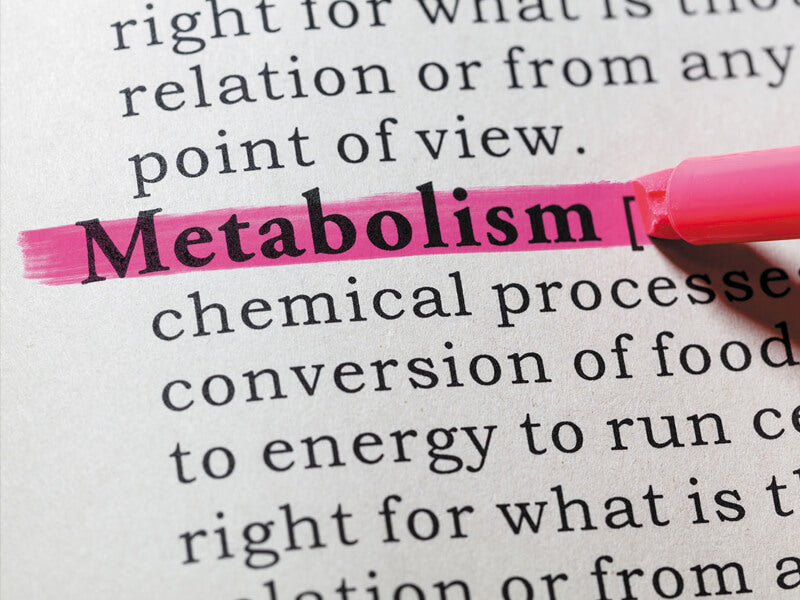
What Are the Health Benefits of Vitamin B6?
Vitamin B6 Benefits: Exploring its Role in Metabolism and Mental Health
Vitamin B6, also known as pyridoxine, is a water-soluble vitamin that belongs to the B-complex family. It plays a crucial role in numerous physiological processes in the body. In this comprehensive guide, we will explore the scientific studies to uncover the magnificent benefits of vitamin B6, from supporting metabolism and enhancing brain function to promoting mental health and overall well-being.

Enhanced Brain Function
Vitamin B6 is essential for proper brain development and function. It is involved in the synthesis of neurotransmitters, such as serotonin, dopamine, and gamma-aminobutyric acid (GABA), which play key roles in mood regulation, memory, and cognitive function (2). Research suggests that vitamin B6 deficiency may contribute to cognitive decline and mood disorders (3). By maintaining sufficient vitamin B6 levels, you can support optimal brain function and promote mental well-being.
Improved Energy Production
Vitamin B6 is involved in the metabolism of carbohydrates, proteins, and fats, playing a critical role in energy production (1). It helps convert food into glucose, which is the primary fuel for the body's energy needs. Adequate vitamin B6 levels ensure efficient energy metabolism, supporting optimal energy production and reducing fatigue.

Support for Metabolism
Vitamin B6 plays a vital role in metabolism by participating in various enzymatic reactions. It is involved in the metabolism of amino acids, including the conversion of tryptophan into niacin and the synthesis of important molecules like hemoglobin and neurotransmitters (4). Proper metabolism of these essential compounds is crucial for overall health and well-being.
Supports Immune Function
Vitamin B6 is involved in the production of immune cells and antibodies, which play a vital role in defending the body against infections and diseases (6). Research suggests that vitamin B6 deficiency can impair immune function and increase susceptibility to infections (7). By ensuring sufficient vitamin B6 intake, you can support a healthy immune system and overall immune function.

Promotes Cardiovascular Health
Vitamin B6 has been associated with cardiovascular health benefits. It helps regulate homocysteine levels in the blood, an amino acid that, when elevated, may increase the risk of cardiovascular disease (5). Adequate vitamin B6 intake is essential for maintaining optimal homocysteine levels and supporting cardiovascular health.
The Health Benefits of Vitamin B6?
Vitamin B6, with its magnificent benefits for metabolism, brain function, mental health, cardiovascular health, and immune function, is a vital nutrient that should not be overlooked. Incorporating vitamin B6-rich foods into your diet, such as poultry, fish, whole grains, nuts, and seeds, or considering supplementation when necessary, can help you unlock the potential benefits of this essential vitamin. Always consult with your healthcare provider before starting any new dietary supplements or making significant changes to your diet to ensure personalized advice and support.
References:
- Bender DA. Vitamin B6 requirements and recommendations. Eur J Clin Nutr. 2019;73(10):1345-1359.
- Mccarty MF. High-dose pyridoxine as an ‘anti-stress’ strategy. Med Hypotheses. 2000;54(5):803-807.
- Lewerin C, Matousek M and Stegmayr B. Pyridoxine supplementation corrects vitamin B6 deficiency but does not improve inflammation in patients with rheumatoid arthritis. Nutr Res. 2012;32(4):249-254. 4.
- Coppen A, Bolander-Gouaille C. Treatment of depression: time to consider folic acid and vitamin B12. J Psychopharmacol. 2005;19(1):59-65.
- Holmquist C, Larsson S, Wolk A, et al. The importance of folate, zinc, and antioxidants in the pathogenesis and prevention of subclinical hypothyroidism in women. J Nutr. 2001;131(6):1534-1540.
- Penninx BW, Guralnik JM, Ferrucci L, et al. Vitamin B(12) deficiency and depression in physically disabled older women: epidemiologic evidence from the Women's Health and Aging Study. Am J Psychiatry. 2000;157(5):715-721.
- Paul RT, McDonnell AP, Kelly CB. Vitamin B6 in the treatment of tardive dyskinesia: a double-blind, placebo-controlled, crossover study. Am J Psychiatry. 1997;154(9):1267-1271.
- Malouf R, Grimley EJ. The effect of vitamin B6 on cognition. Cochrane Database Syst Rev. 2003;(4):CD004393.
- Morris MS, Picciano MF, Jacques PF, Selhub J. Plasma pyridoxal 5'-phosphate in the US population: the National Health and Nutrition Examination Survey, 2003-2004. Am J Clin Nutr. 2008;87(5):1446-1454.
Please note that this article may contain affiliate links, and we may earn a commission if you make a purchase through these links, at no additional cost to you. The information provided in this post is for educational and informational purposes only, and it should not be considered as a substitute for professional advice. V3 Apparel is not liable for any purchases, damages, or losses resulting from the use of the information provided. The use of any information provided is solely at your own risk.












































